Key Takeaways
- Many people start supplements without a clear goal, chasing trends instead of matching products to real needs.
- Quality, forms, and doses matter – two bottles with the same nutrient on the label can work very differently in the body.
- Supplements are meant to build on a solid diet and lifestyle, not replace them or act as a quick fix.
- Choosing fewer, well-formulated essentials beats a cluttered stack that overlaps, underdoses, or wastes money.
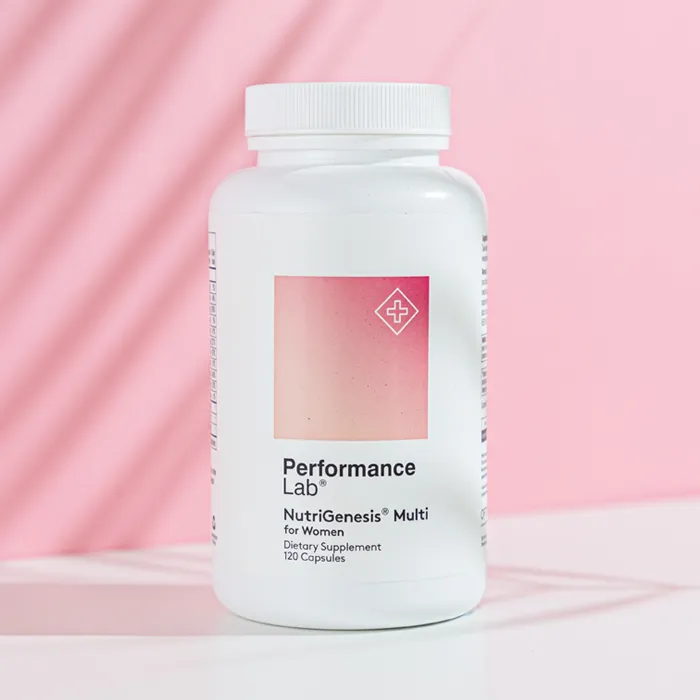
Where do you start with supplements?
What makes one better than another? How necessary are they? Can't we just get everything we need from food? And do the majority really end up down the toilet?
So many questions.
If you've ever found yourself overwhelmed by the multitude of supplements available on the market - you're not alone. Supplements have become a major player in our journey towards peak performance. In fact, over half of Americans regularly incorporate a supplement into their daily routine. But with a dizzying array of options and a sea of questions to answer, how can you confidently navigate the supplement landscape?
This article will help you separate the facts from the myths and offer a few pointers on successfully choosing the right one for you.

Myth 1: All Supplements Are Equally Beneficial.
Supplements - there's loads of them. All claiming the same thing.
So how different can they be? In the simplest terms - don't you just take the nutrient, extract it from the source, and pop it in a pill? The difference in price? - Well, that's surely just down to brand buying power. The bigger the brand - the cheaper they can produce them.
Not quite.
One of the biggest myths/confusions around supplements is that they're all equally effective and safe. In reality, there can be significant differences in the quality and bioavailability of them. And that's where the difference in price comes in.
Some supplements are synthetic. Also referred to as isolated nutrients. These are usually made artificially in an industrial process. Isolated nutrients are not easy for the body to recognize and absorb, because they don't come with the natural transporters and cofactors needed for your body to recognise them.
And that makes them less effective.
Our bodies have evolved to know the difference. In order to utilize the vitamin effectively, our bodies require the full spectrum of enzymes and cofactors. If they're not present our bodies will reject them, straight down the toilet.
Look for nature identical vitamins.

The term nature-identical refers to a type of vitamin that's identical to its natural counterpart. It's grown in a state-of-the-art botanical setting and can be found in nature in the exact same form. Under a microscope and in the body, they look and behave the same way.
Look for brands that prioritize quality and label transparency. Does the ingredient have the prefix "dl-"? Dl means the ingredient is synthetic.
Look for third-party testing and certifications.
Look for external third-party testing that ensures every batch produced contains exactly what it states on the label.
The Clean Label Project® purchases products at retail, tests them for purity (chemicals of concern including heavy metals, pesticide residues, and plasticizers), and compares the results to high-risk chemicals listed on the State of California Environmental Health Hazard Assessment Office's Proposition 65 list. If the product is found to comply, it qualifies for Clean Label Project Certification. Check your brand complies on their website.
Myth 2: Supplements Can Off-Set a Poor Diet.
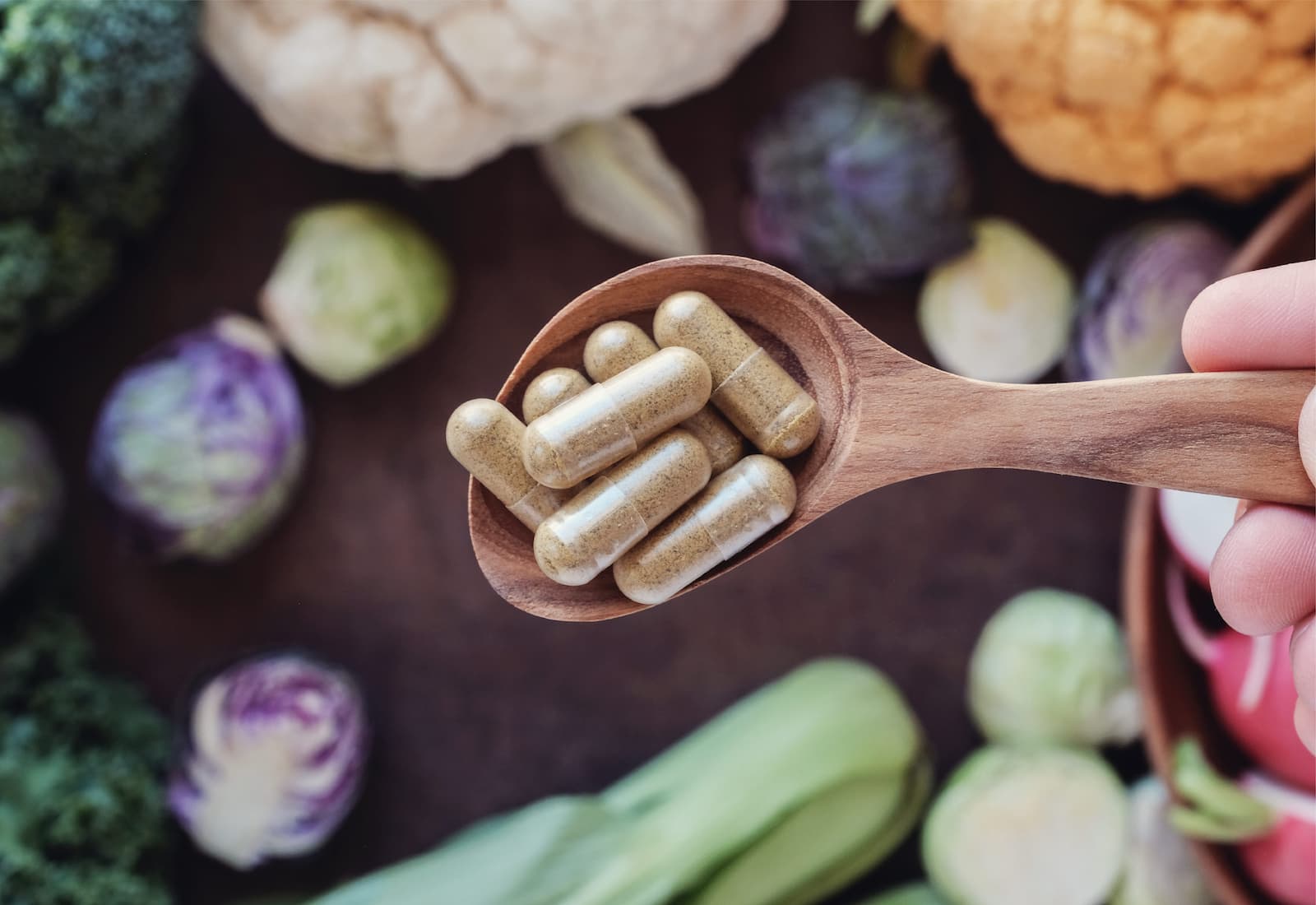
First things first. Food is best.
Supplements are meant to complement a healthy and balanced diet, not replace it. While they can help fill nutritional gaps, neglecting real whole foods means we're missing out on the synergistic benefits that a varied diet provides.
Supplements are not a get-out-of-jail-free card.
A diet with a high proportion of refined sugars, processed foods, and trans-fats has been linked to chronic disease, obesity, and inflammation. No amount of quality supplementation will bail us out of that problem. Supplements can't overrule a bad diet.
A well-rounded organic diet comprising fruits, vegetables, whole grains, and healthy fats is the foundation of good health.
Myth 3: More Is Always Better.
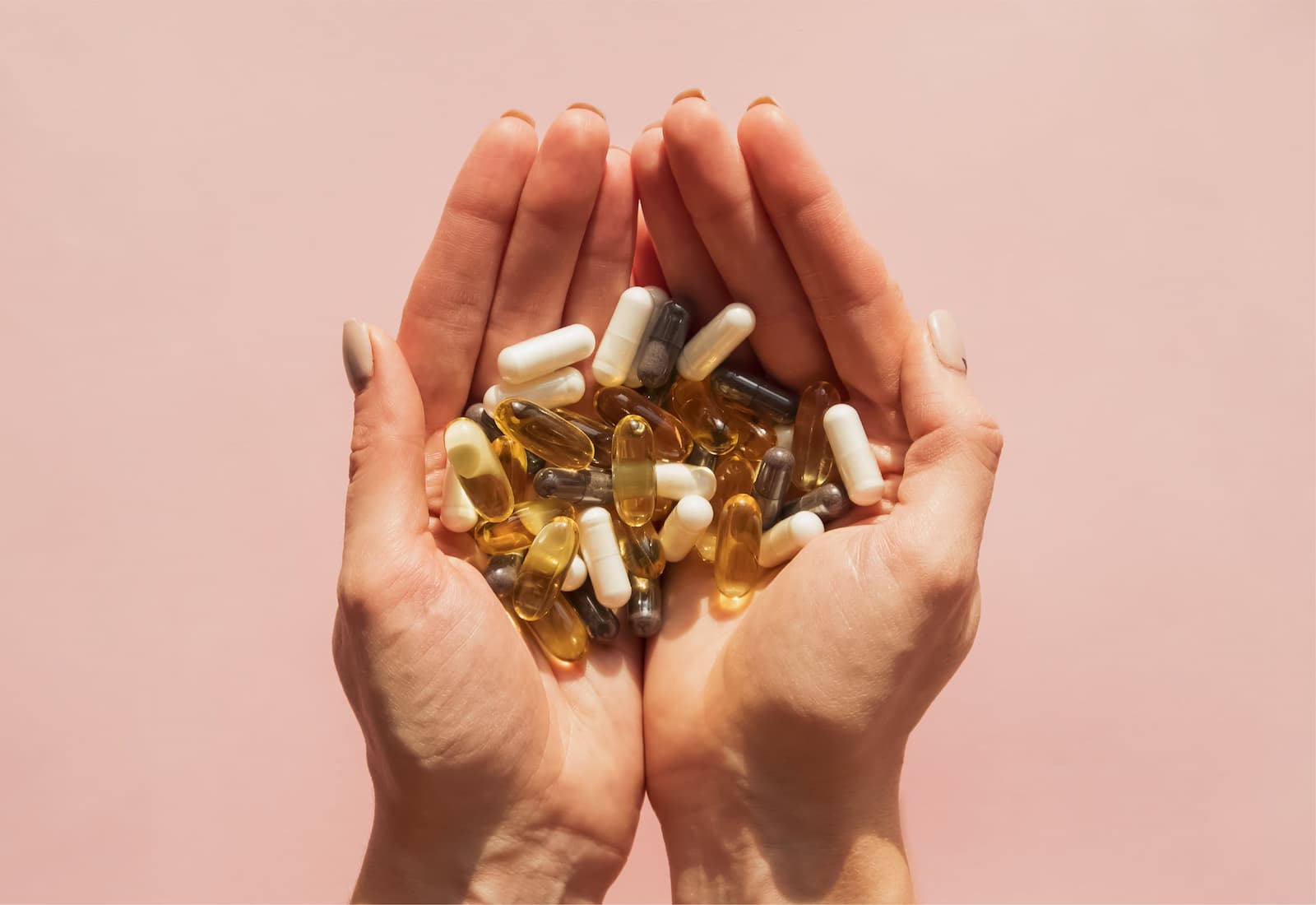
Millions of people take vitamins as part of their daily routine. But when it comes to supplements, it is possible to have too much of a good thing.
Vitamins are divided into 2 categories, water soluble and fat soluble.
Water soluble vitamins
These are not stored in the body, so we need a regular supply through our diet. If there's any excess, the body excretes them.
Fat soluble vitamins
These don't dissolve in water and are stored in the body's fatty tissue. Fat soluble vitamins such as A, D, E and K can accumulate in the body. Regular abnormal doses of these vitamins can come with some adverse side effects.
Vitamin A is important for vision, skin, immunity, tissue repair and bone health. It's found in green leafy vegetables, sweet potatoes, carrots, and broccoli. The recommended daily amount is 900 mcg for men and 700 mcg for women. Consuming more than 1500 mcg a day, over a long period of time can cause skin issues, changes in vision, nausea, dizziness, migraines, and bone pain.
Vitamin C is important for immunity, cardiovascular health, skin, joints, gums, bones, and muscle health. Although it would be pretty hard to overdose on this water soluble vitamin, too much of it over a long period of time can result in digestive issues such as diarrhea, cramps, and nausea.
Vitamin E is important for cardiovascular health, hair, skin, nails, and tissue repair. It's found in plant oils, soya, nuts, seeds, and wheat germ. The recommended daily amount of vitamin E for adults is 15 mg a day. Daily doses of 300 mg or more may lead to nausea, diarrhea, cramps, fatigue, and blurred vision.
Iron plays a vital role in growth, development, oxygen transport and maintaining energy levels. It's found in organ meats, soybeans, white beans, clams, and hot and cold cereals. The recommended daily amount is 8mg for men and between 8-18 mg for women (depending on age). Daily doses of more than 40-45 mg/day can lead to gastrointestinal discomfort, constipation, nausea, vomiting, and fainting.
If you're starting something new or adding to an existing supplement routine, make sure you check the labels of all supplements and factor in your daily diet. If in doubt, it's always best to check with your healthcare provider before stacking any supplements.
Myth 4: Natural means 100% natural:
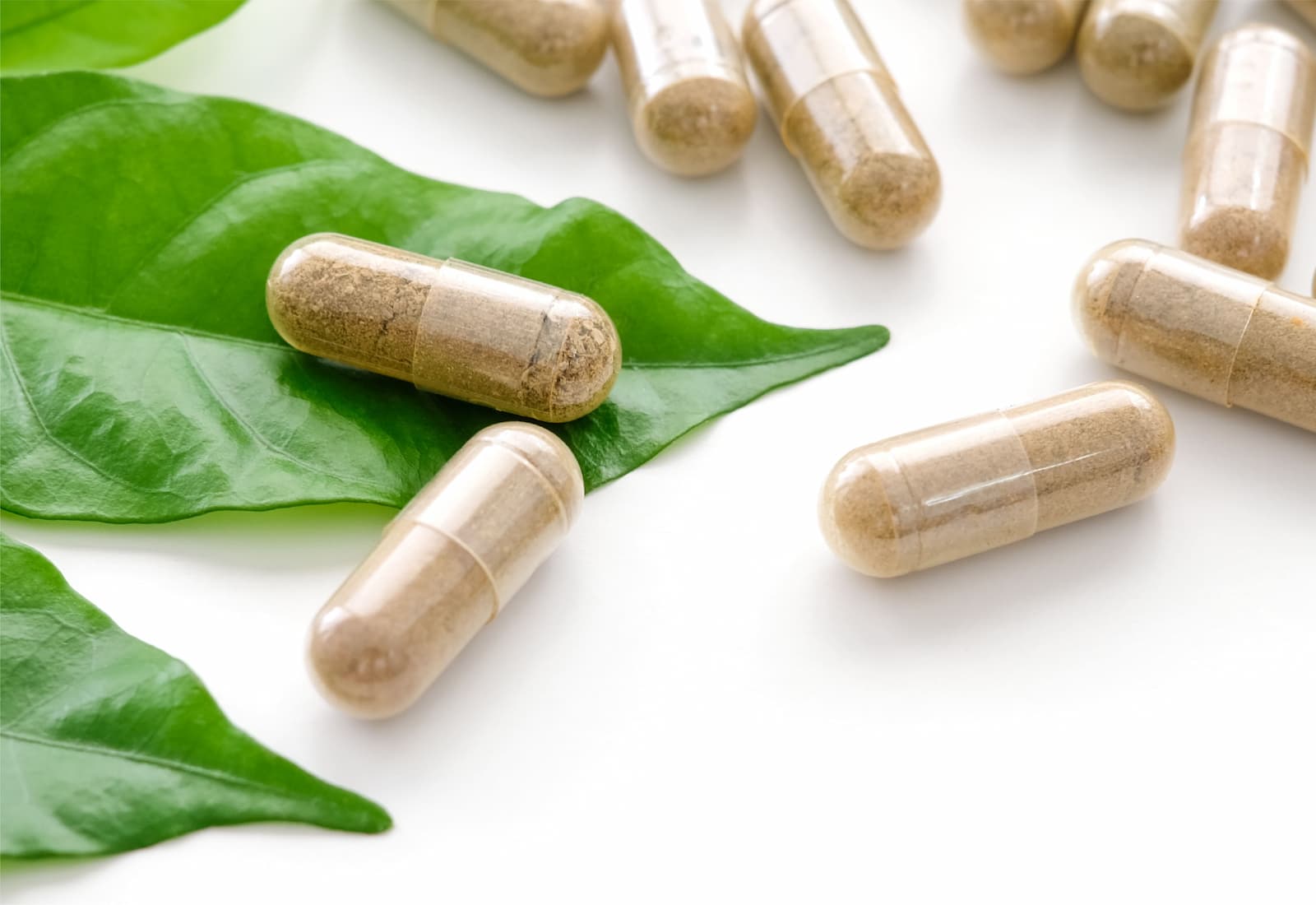
When we're faced with rows upon rows of supplements to choose from, how do we make the call as to which one is going to be the best for us? Perhaps we take our time and read every label, checking the dosage, source, and purity of each ingredient. Or perhaps...
We choose the one with a picture of a plant on the label.
Because anything depicting nature, plant life or whole foods has got to be good for us - right?
Be careful, natural is a murky word.
Supplements fall under the 'food' category regulations. The FDA hasn't issued formal rules about the use of 'natural' on food labels. As of 2018, their policy states they consider the term 'natural' to mean that, "nothing artificial or synthetic (including all color additives regardless of source) has been included in, or has been added to, a food that would not normally be expected to be in that food." Which means a fruit drink containing high levels of fructose corn syrup, could still be labeled 'natural' as long as it doesn't have any added colorants. But high-fructose corn syrup is still bad for you.
Even 100% natural doesn't necessarily mean organic. A "100% natural" supplement might be made with plants that are treated with pesticides and artificial fertilizers.
Look beyond the "all natural" claims. Legislation in general is pretty ambiguous around the subject, and there is no clear definition of what a natural or whole food vitamin is. The nutrition facts and ingredients label, which is regulated, is where the truth's at.
Myth 5: All supplements are regulated.
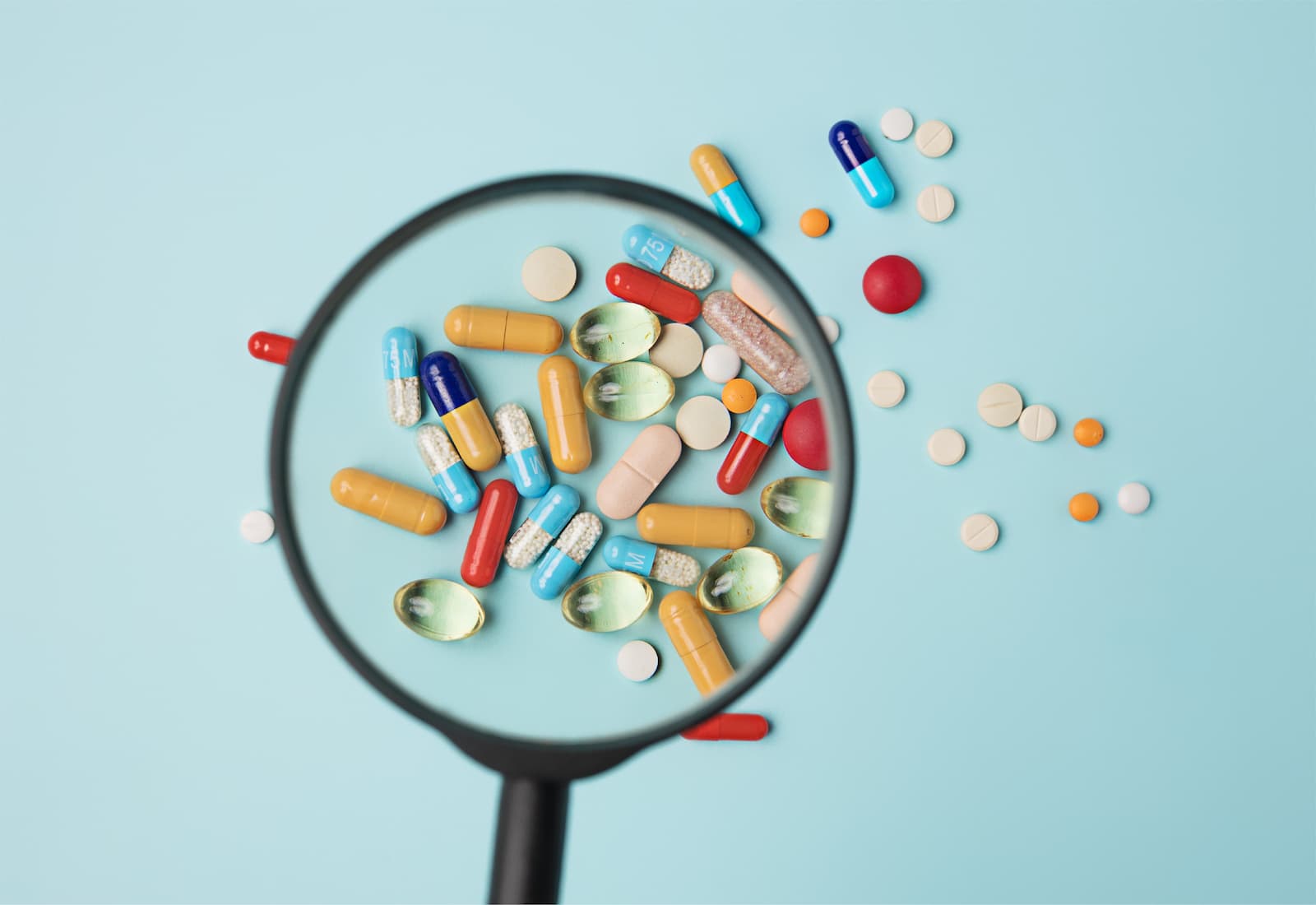
The regulation of supplements varies from country to country. The FDA plays an important role in ensuring the safety of food products, pharmaceutical drugs, cosmetics, and medical devices.
Supplements are classed as a food product. And food products have different regulations to pharmaceutical drugs. Because supplements are not considered drugs, they do not require pre-approval from the FDA before they're released, but they do enforce the types of claims that can be made about the product. And the FDA can take action if a product is found to be unsafe or misbranded.
In the UK, supplements are also classed as a food product and sit under the Food Standards Agency (FSA). They must comply with specific labeling and safety requirements, but much the same as the FDA, this does not involve pre-market approval.
Final thoughts
Supplements are valuable tools for supporting your health, but it's crucial to separate fact from fiction.
To find the right supplement, opt for products that have undergone third-party testing, display certifications, and have positive customer reviews. Research the manufacturer's reputation and ensure their claims are backed by science.
Performance Lab® Nutrigenesis® vitamins, minerals and amino acids use a patented process based on Nobel Prize winning research. For you this means:
Improved Bioavailability:
Grown to be chemically identical to their natural counterparts means enhanced bioavailability - the body's ability to absorb and use the nutrients.
Consistent Quality:
Precisely controlled growing conditions, results in vitamins of consistent quality and potency. This ensures you receive the same high-quality product every time you buy.
Purity and Safety:
Nutrigenesis® vitamins are free from contaminants that might be present in natural sources, such as heavy metals or pesticides. Providing you with a safer product.
Third Party Testing
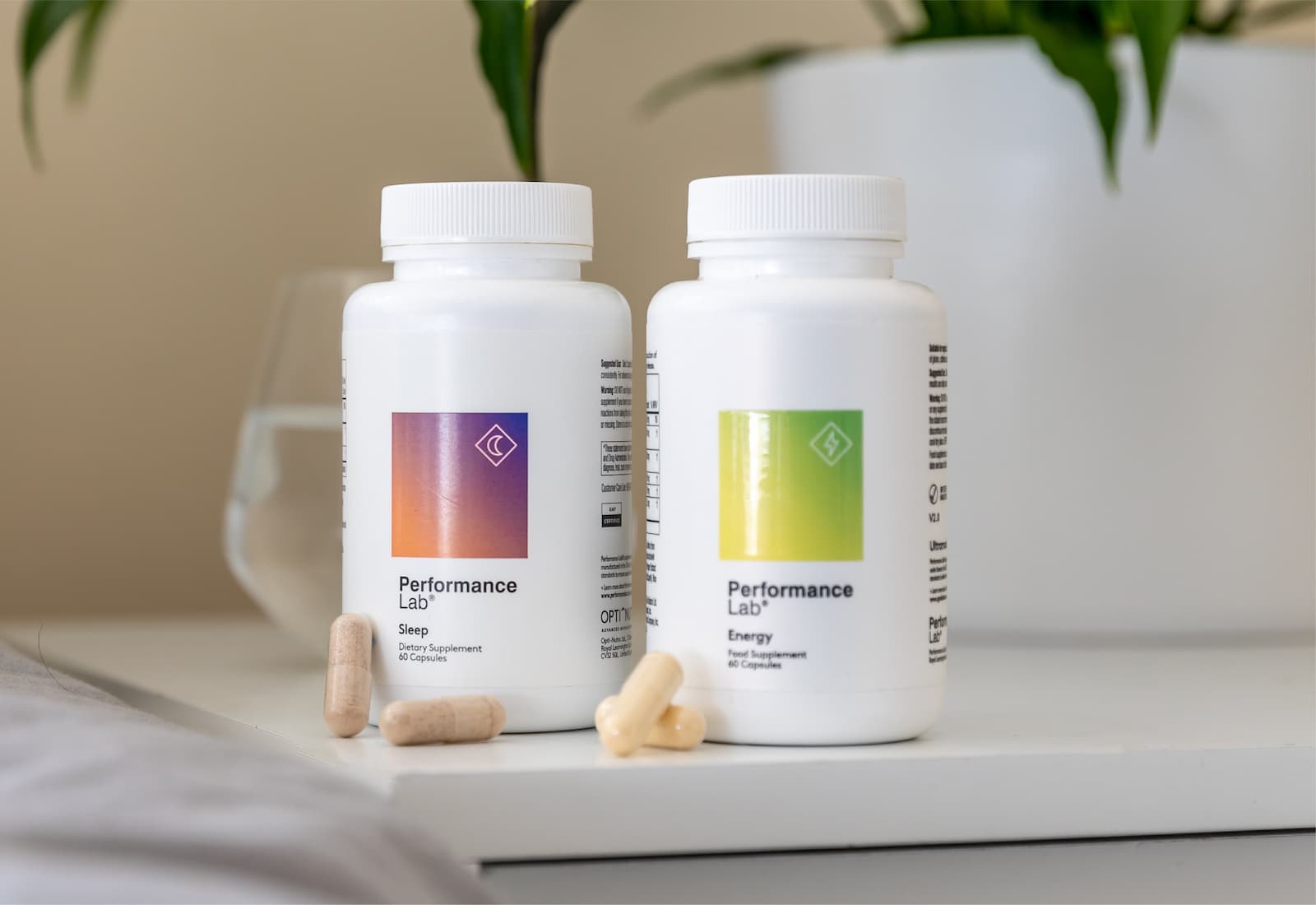
Our raw materials are quarantined, and every batch we produce is tested internally and by a third party to ensure our products are bioactive, clean, and precise. Our labels match what's in the bottle, every single time.
In addition to this, we partner with the Clean Label Project, a non-profit organization that focuses on health and transparency in consumer product labeling. They purchase products at retail, and test for purity and harmful environmental and industrial contaminants and toxins such as heavy metals, pesticide residues, and plasticizers.
Excellent reviews
Check out our product reviews from verified customers for an insight into real life experiences from people who've shopped with us.
















